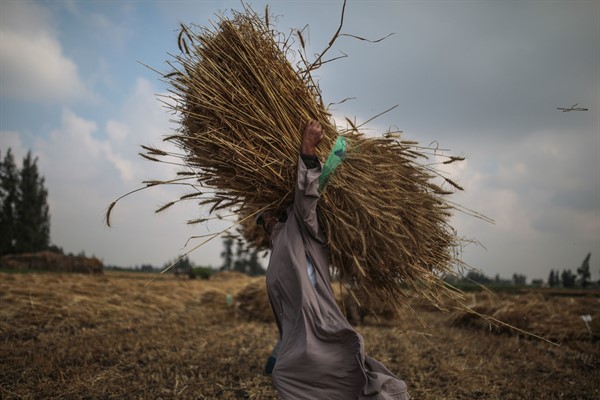Russia’s invasion of Ukraine, which pits two of the world’s major wheat and corn producers against one another, has deep implications for several grain-importing countries. Grain prices had already risen steadily over the past year due to pandemic-related supply chain disruptions and increasing energy prices. The war further pushed these prices to an all-time high in February, seriously rattling an already shaky global food system.
While some commentators are calling for trade measures that would facilitate alternate sources of grain exports to make up for the shortfalls, what is really needed is a major rethink of the conventional food security paradigm that has reigned for the past several decades.
Together, Russia and Ukraine account for 29 percent of global wheat exports and 19 percent of global corn exports. Pandemic-linked disruptions of grain exports and rising energy prices had already pushed up food prices prior to the invasion, with the price of wheat increasing 80 percent between April 2020 and December 2021, according to the International Monetary Fund. Since the start of the war, wheat prices have increased another 50 percent. This is a particular problem for countries that directly import much of their grain from Russia and Ukraine, such as Bangladesh, Sudan, Pakistan, Turkey and Egypt.

